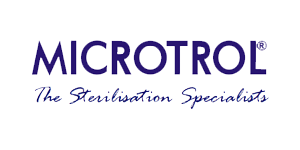
6 Ways How You Can Prevent Miscarriage
What is a Miscarriage?
A miscarriage (or spontaneous abortion) is an unexpected loss of pregnancy in the early gestation period. Miscarriages occur in almost 30% of all pregnancies and a large number of these go unnoticed. According to the NHS, the most common symptoms of miscarriage include vaginal bleeding and cramping in the lower abdomen. Most miscarriages occur in the first trimester of the pregnancy and the mere thought of miscarrying can be gut-wrenching for a first-time mother-to-be.
The results of an analysis showed that although taking multivitamin and folic acid supplements reduces the risk of stillbirth, it does not prevent miscarriages nor does it reduce the number of women having miscarriages.Read more below
What Causes Miscarriages?
There are a few common causes of miscarriages and some of them are given below:
- Chromosomal or genetic abnormalities – interferes with the normal development of the fetus and lead to spontaneous abortions.
- Endocrinological disorders
- Weak cervix and other uterine abnormalities
- Ectopic pregnancies – Pregnancy in which the fetus grows inside the fallopian tube and not the uterus, leading to improper development of the baby and complications including miscarriages.
- Autoimmune diseases – such as lupus, can also lead to pregnancy loss
- Antiphospholipid Syndrome (APS) – characterised by clots formation
- Lifestyle and Environmental Factors
Despite our knowledge of the causes of miscarriages, the cause remains unknown in a lot of clinically recorded miscarriages.
How to Prevent Miscarriages?
It isn’t possible to entirely prevent miscarriage, but there are several lifestyle changes one can make to reduce the risk.
Since the symptoms are very similar to common cold and flu, sick building syndrome becomes difficult to diagnose and you can be diagnosed with sick building syndrome only after other respiratory illnesses are ruled out.
Stop consuming alcohol
The link between consumption of alcohol and miscarriage is nothing new. It has been found that the risk of miscarriages increases by 6% with each drink.
Don’t smoke (actively or passively)
Smoking and second-hand smoking are linked to an increase in the risk of miscarriage, which is why it is essential for women not to smoke when they’re pregnant. If you have a family member who smokes, you may want to get the indoor air in your house tested.
Avoid contaminated foods
Contaminated foods can contain a variety of microorganisms and some of these can severely affect fetal development and result in miscarriages. Several food-borne illnesses are Toxoplasmosis, Listeriosis, E. coli Enteritis, and Salmonellosis.
Toxoplasma
Toxoplasma is one such organism that can travel from contaminated food and milk to the mother to be to the fetus and even cause miscarriages. The FDA recommends washing hands regularly, cooking meats thoroughly and ensuring you are not drinking contaminated water to protect yourself from toxoplasmosis and congenital toxoplasmosis complications.
Listeria monocytogenes
Listeria monocytogenes is a bacteria responsible for listeriosis and is found in certain foods, including melons, raw milk, soft cheese and raw sprouts. Salmonella is another bacteria that can increase your risk of miscarrying.
Please send us a message or call us at +91 6366942390 and we’ll be there to ensure your food has no harmful contaminants.
Limit your daily caffeine intake
Having a daily caffeine intake of more than 300 mg can be harmful to the fetus as well as the mother, increasing the risk of miscarriage as well as a low birth weight of your baby.
Maintain a fit body
Try to exercise and maintain your BMI in the normal range to avoid any unnecessary pregnancy complications. Although strenuous exercise should be avoided, doing light exercise can be very helpful during pregnancy.
Ensure the drinking water isn’t contaminated
The drinking water we use in our homes may contain arsenic, or be contaminated with lead can also be the cause of an unexpected pregnancy loss. There is also moderate evidence suggesting associations between water contaminants and spontaneous abortions.
Ensure you are drinking good quality of the water our water testing service helps you determine if the water is safe or not. Click to contact us.
Bed Rest doesn’t Prevent Miscarriages!
If a woman has a high risk of miscarrying, she may be advised bed rest to prevent miscarriage but studies show that bed rest has no significant effect in preventing miscarriages. This may also be due to insufficient data available and small numbers of women in trials of these kinds.
Should you take Folic Acid Supplements to prevent Miscarriages?
Research seems split on whether folic acid and other multivitamin supplements prevent miscarriage. A study titled, ‘Vitamin supplementation for preventing miscarriage’ combined and examined data from more than 40 trials and 2,76,000 women to see if multivitamin supplements could prevent miscarriages. The results of the analysis showed that although taking a multivitamin and folic acid supplements reduces the risk of stillbirth, it does not prevent miscarriages nor does it reduce the number of women having miscarriages.
Other studies state that taking folic acid may reduce the risk of miscarriage, especially in India where the plasma folate levels are very low, which could be a cause for miscarriage. Despite these contrasting studies, folic acid is recommended by doctors for the healthy development of the fetus.
























